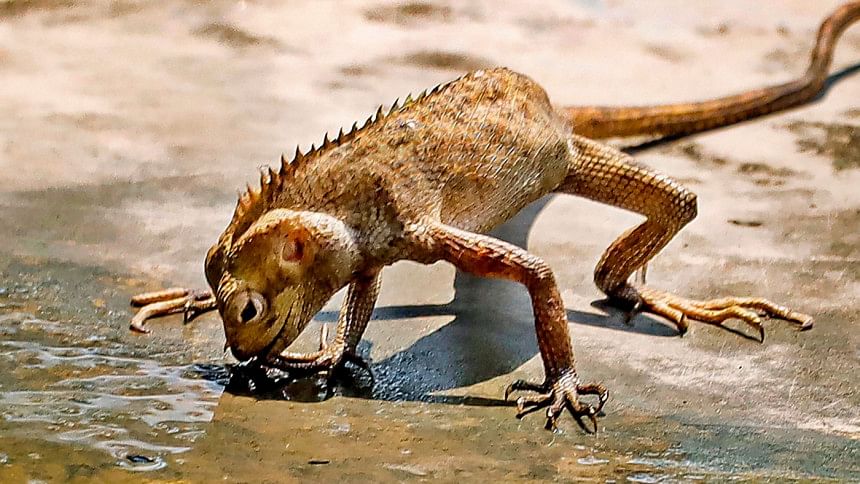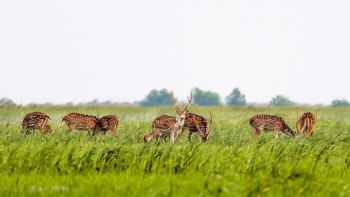Nature quest: Too hot for the cold blooded

An oriental garden lizard takes a sip of water from a drying puddle on the road in Jalma area of Khulna's Batiaghata upazila recently. Lizards are ectothermic, or "cold blooded" animals, which means they rely on the environment around them to regulate their body temperature, unlike mammals who can produce heat internally to stabalise their temperatures.

Without sweat glands or metabolic control, lizards can heat up very quickly if they find themselves out in the sun for too long, in which case they prefer to find shade or a burrow to hide in.

The absence of these options can turn deadly for them. In a world where climate conditions are gradually getting tougher, it is safe to say that reptiles such as lizards find themselves in an increasingly vulnerable position.

 For all latest news, follow The Daily Star's Google News channel.
For all latest news, follow The Daily Star's Google News channel. 





Comments